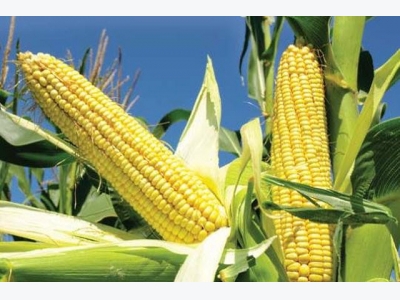Breeding highly productive corn reduced its ability to adapt

Crop breeders need to be able to develop new varieties that are adapted to a new location or changing growing conditions in the same area.
Both types of adaptation rely on a pool of possibilities, the combinations from which one can choose.
For the individual plant, those possibilities depend on the genome it was born with. For breeders, that pool of possibilities is the whole range of genomes of cultivated crops, which they can blend together to create new varieties.
Researchers at the University of Wisconsin Madison wanted to know whether the last 100 years of selecting for corn that is acclimated to particular locations has changed its ability to adapt to new or stressful environments.
By measuring populations of corn plants planted across North America, they could test how the corn genomes responded to different growing conditions.
Writing Nov. 7 in Nature Communications, UW–Madison Professor of Agronomy Natalia de Leon, her student Joe Gage,and colleagues at several institutions report that artificial selection by crop breeders has constricted the pool of possibilities for North American corn varieties.
They conclude that the existing corn varieties are strong and stable, but are less flexible in their ability to respond to various stresses. At the same time, these corn populations might have a reduced ability to contribute to breeding programs that seek to create new varieties adapted to novel environments.
“Over the last 100 years, people have definitely improved cultivars,” explains de Leon, the senior author of the new report. “What we were trying to do in this study is to measure whether by doing that we have also limited the ability of the genotypes to respond to environments when they change.”
By intensively breeding for high yield, say, in Wisconsin, those plants might lose the flexibility to respond to environments that are very different from Wisconsin's growing conditions.
To test this idea, de Leon and her colleagues at 12 agricultural universities in the U.S. and Canada devised a large field trial with more than 850 unique corn varieties at 21 locations across North America.
There were more than 12,000 total field plots where researchers measured traits like yield and plant height while recording weather conditions.
The massive experiment is only possible because of a collaboration that de Leon, UW–Madison agronomy Professor Shawn Kaeppler, and others lead, called Genomes to Fields.
The project stretches across 20 states and into Canada, providing precisely the range of different field conditions that is required to tease apart the different contributions of the genomes and environments to the final traits of corn that were used in the new study.
De Leon and her collaborators found that the regions of the corn genome that have undergone a high degree of selection for example, gene regions that contribute to high yield in a particular location were associated with a reduced capacity of corn to respond to variable environments than genomic regions that weren’t directly acted on by breeders.
The upshot is that the modern corn varieties are very productive in the environments they are grown in, but might have a harder time handling changes in those environments.
Related news
 Rice exports see sharp rise in value for 2017
Rice exports see sharp rise in value for 2017 Rice exports have risen sharply, increasing 20.9% to 5.66 million tons while seeing a 23.8% jump in value to nearly US$2.6 billion during the 11 & a half month
 Rice exports exceed 2017 targets
Rice exports exceed 2017 targets Volume passes annual target in November, in a year when rice exports were widely expected to struggle.
 Cashew Industry for stable solutions for raw material
Cashew Industry for stable solutions for raw material With a plan to help Cambodia develop raw material areas, Vietnam cashew industry is expected to have a stable supply of raw materials, reducing the dependence